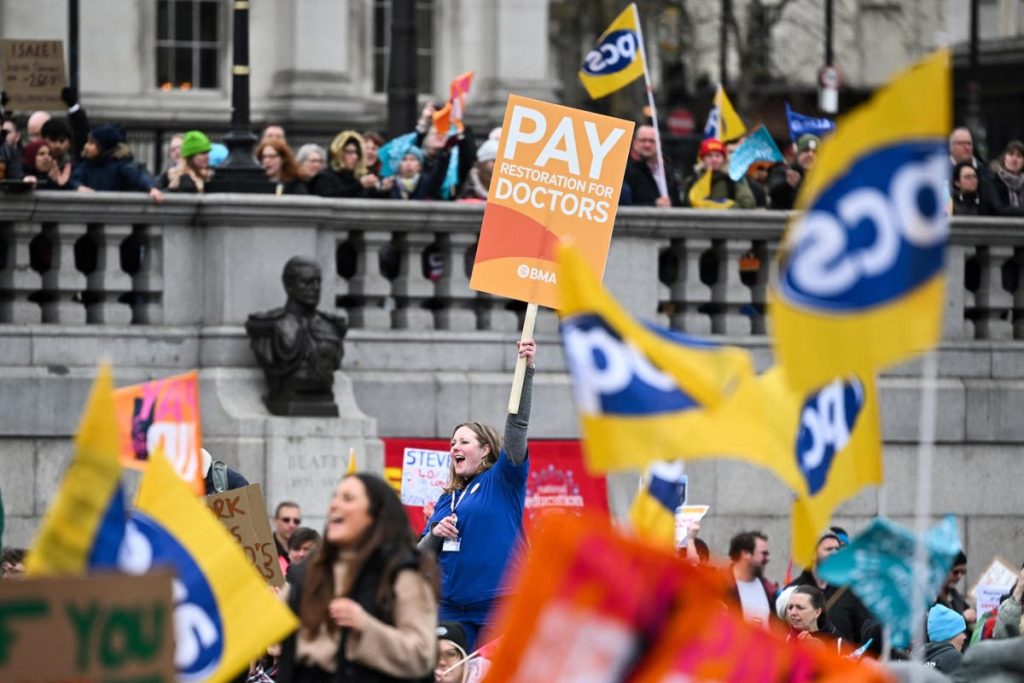Senior doctors could become the latest public sector workers to walk out in England over pay they say is inadequate.
The country’s junior doctors, nurses, ambulance workers, postal workers, rail staff and border staff have all gone on strike over the last year as part of separate disputes.
Senior doctors — known as consultants in the U.K. — are currently voting on whether to perform industrial action of their own. And on Wednesday, the British Medial Association union announced two potential strike dates in late July.
With two weeks left to vote, it’s still too early to know what consultants will decide. But similar ballots by other groups of healthcare workers have overwhelmingly supported walk-outs.
If consultants choose to strike — and union leaders and government ministers fail to come to an agreement in the meantime — these doctors will walk out on July 20th and 21st.
This will be a major challenge for hospitals, which have faced months of ongoing industrial action. Junior doctors, for example, have already set strike dates for June.
Both sets of strikes will have serious impacts if they go ahead. While junior doctors’ roles can potentially be covered by more senior clinicians — assuming they agree to fill in — consultants’ work cannot be covered in the same way.
Hospitals will likely need to cancel tens of thousands of elective and outpatients appointments if the strikes take place.
But BMA consultants committee chair Dr Vishal Sharma said industrial action “is not inevitable”, and that the government could prevent the strikes by presenting “a reasonable offer.”
The union argue consultant pay has lagged far behind inflation, leaving these doctors valued “a third less than they were 15 years ago.”
Sharma said in a statement that his union was committed to “safe” and “effective” action, and was giving doctors and their employers six weeks of notice so they can organise their appointments to ensure the most urgent patients are still seen.
“We are also reiterating that any strike action will still deliver Christmas Day levels of care — meaning emergency departments will still be open and staffed with consultants,” he added.
“We know consultants do not take decisions around industrial action lightly, but this isn’t just about pay – it’s about protecting the future of the NHS. If we sit by and accept further real-terms pay cuts we risk losing more of our most senior and experienced clinicians at a time when the NHS and patients need them most.”
Like other unions, the BMA argues that National Health Service pay — which is ultimately decided by government — needs to improve to ensure the service is staffed well in the future.
The country is currently weathering twin crises in emergency and planned care, with an overstretched workforce battling both a large elective waiting list and major pressures on emergency services.
Sharma said: “We want to create an environment in the NHS that consultants want to work in, and that junior doctors can see their future in.”
Calling industrial action “a last resort” he added that there was “simply no justification” for consultant’s current level of compensation.
Consultants have until June 27th to vote on strike action.
Read the full article here










